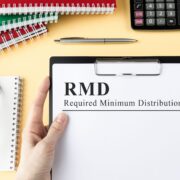Regardless of being at historical lows, inflation remains a crucial financial preparation factor to consider for monetary advisors and their customers.
Inflation is at historically low levels, signing in at 1.4% for the 12 months through September of 2020, according to the U.S. Department of Labor. This is listed below average rates over the previous twenty years and because of the completion of The second world war.
Yet even at these historically low levels, inflation is still a crucial financial preparation problem for your clients and potential customers.
Inflation and Retirement Risks
Jeff Bush, president of Informed Household Financial Solutions, states, “Inflation is without a doubt the most significant difficulty our clients face in retirement. Even using a modest inflation rate in our earnings forecast designs, buying power can deteriorate quickly, especially when looking at a 20-plus year retirement.”
It has been stated by numerous that inflation is the single greatest risk aspect in retirement, larger than the risk that retirement savers may experience losses on their investments. Advisers understand that even a percentage of inflation can erode a client’s purchasing power over a relatively short period of time. Utilizing the guideline of 72, a 3% yearly rate of inflation would cut acquiring power in half in 24 years. This is not an long period for an individual to spend in retirement. And while the existing level of inflation is well listed below 3%, this is, traditionally, a fairly normal level of inflation.
A lot of the important things that retired people spend money on generally boost in cost quicker than the general rate of inflation. Examples consist of the expense of long-term care and the expense of prescription medicines. The cost of living boosts for Social Security does not constantly keep up with the true cost of inflation for retirees. As an example, the cost of living increase for 2021 is a paltry 1.3%.

College Costs and Inflation
As those who are saving for college for their kids know all too well, the cost of college continues to rise. The expense of college has been increasing at approximately double the rate of inflation over the previous thirty years. Even the disturbances in on-campus knowing from the COVID-19 pandemic have not supplied much relief.
Housing Expenses
The COVID-19 pandemic has seen a need for real estate in numerous suburban locations that has overtaken supply for much of 2020 as lots of people look to leave congested urban locations. This, integrated with a traditionally low rate of interest, has served to drive up housing costs in lots of areas up until now in 2020.
While this inflation in housing expenses might or might not last, this could have an influence on customers if they are aiming to buy a new house.
Implications for Financiers
Whether your customers are retired or approaching retirement, or if they are saving for other monetary objectives, their investments are an essential tool in staying ahead of inflation. Investments are affected by inflation in a variety of methods.
Investments in cash, such as in cash market accounts or similar interest-bearing investments will generally lose ground to inflation due to their relatively low rate of interest.
Recently released debt securities will reflect higher interest rates that are usually caused by increased inflation. Nevertheless, existing bonds could experience a decrease in value due to increased rates of interest amid increased inflation.
Stocks normally are a great method to counter inflation. Nevertheless, their appraisals can be affected by inflation as well. Rising costs can hurt the bottom line of some companies. An increasing rate of interest can reduce earnings through greater debt expenses.
You will always desire to have your customers in a mix of investments that are lined up with their threat tolerance and their investing time horizon. Clients at all phases of life will need some level of security from inflation also.
When it comes to clients who are retired or approaching retirement, it is essential that their financial investments reflect a property allowance that offers the opportunity for them to stay ahead of inflation, lowering their threat of outlasting their money in retirement.























Comments